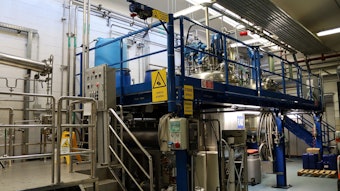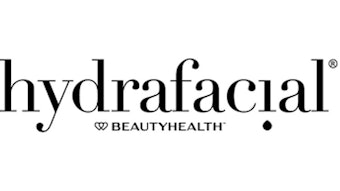- Commited consumers of products with natural and organic claims are not willing to change their commitment to these products, but they are willing to change their purchase habits.
- This is a time to think entrepreneurially, move fast and launch at a price point that is strong enough to compete.
- Production isn’t as sexy a subject as active ingredients or exotic delivery systems, but a production gain can have a direct impact on market-responsiveness and bottom-line profitability for customers at retail.
The impact of the recession on sales of natural and organic cosmetics has shown that this category is not just an alluring target when the world economy is running smoothly. In stormy weather, it’s a lifeboat for brands of all sizes. Early 2009 data for virtually all the major brands revealed weakening demand overall but surprising strength in naturals and organics sold through mass-market channels.
Globally, consumers are not about to give up their commitment to products they believe offer greater purity. But under the looming threat of layoffs and financial insecurity, they are willing to change their purchase habits. Trends underway before the downturn—including fast growth in private label and broadening distribution through mass retailers, supermarkets, and mainstream drugstores and pharmacies—have accelerated. Consumers hooked on naturals and organics still want those claims, but they are now shopping lower in the retail food chain to find these products at prices they deem more reasonable.
For brand managers, the equation for success in this category remains more or less the same—though some important variables have changed. As always, the biggest players may apply R&D and production resources to extend their brands with new natural and certified organic products. Or they may simply apply cash to acquire an established natural brand and its retail distribution. For everyone else, this is a time to think entrepreneurially, move fast and launch at a price point that is strong enough to compete with bigger brands.
To mitigate risk in a tough economy, the key is finding a contract manufacturer with plenty of experience working with natural and organic ingredients and the production savvy to ramp quickly for worldwide distribution. If market predictions unveiled at In-cosmetics 2009 prove correct, many of the most lucrative opportunities to be found during the recession will be in markets beyond North America and Europe.
Creating Organic Products: Chef or Scientist?
Choosing the right contract manufacturer always hinges on the same fundamentals: assessing development and production capabilities, capacity, market savvy and human “chemistry.” Experience with a particular class of ingredients is generally not at the top of the list. But in the natural and organic product categories and during this economy, brand managers would be wise to reconsider their priorities.
“Organics are more challenging than most people in our industry realize,” says Greg Stewart, R&D director, Sensibility Soaps. “They require unconventional processes, out-of-the-box thinking and a lot of experience to optimize their performance.” Sensibility Soaps began focusing on organic personal care products in 1996. In 2003, the company became the first manufacturer in the category to be awarded organic certification through the USDA’s National Organic Program. Today, it is a fast-track manufacturer of custom and private label bath, body, hair and skin care products—acting as the development and manufacturing engine powering many of the most successful organic brands in the U.S.
“Only a few years ago, skeptics were still crowing that organics would never win a meaningful share of this market,” says Lynn Betz, who co-founded the company with her husband Thom Betz. “ ‘Organics aren’t stable enough.’ ‘Their shelf life is too short.’ ‘They’re hard to preserve.’ ‘Customers will never be satisfied with the color and texture possible with organics … ’ It was an uphill battle, but we’ve resolved all those challenges. In fact, we launched our own Nourish brand in 2004, mainly to prove once and for all that luxurious quality, performance and mainstream customer acceptance were all possible with a line of natural and certified organic products.”
“It’s easy to tweak chemical additives and optimize a conventional body wash. We’ve all been there,” says Stewart. “But doing this with organic ingredients is another story. A deep, rich lather and creamy texture, for example, are a lot tougher to achieve consistently when you have to account for such things as normal crop variation in botanicals. It requires a great deal of intuition—not just a recipe that will always produce the same result. Developing a certified organic body wash is really more like working as a chef in a five-star restaurant than an R&D director in a laboratory.” An ongoing search for out-of-the-box “enabling” technologies is among the core strategies that have led Sensibility Soaps to success—posting consistent annual growth exceeding 40%.
“Every cosmetics manufacturer monitors new developments in such enabling technologies as cosmetic actives, biopolymers and botanical actives,” says Stewart. “Their attention is 90% focused on the front end of the process. Our approach is different. Our perspective is broader, more holistic instead of being splintered into the usual divisions that separate development from production, and so on. We’re all looking at the whole picture—from concept development through production, packaging and delivery.
Rather than concentrate exclusively on development, we also look for novel opportunities on the equipment side—in production, for example, to help us improve quality, turnaround and lower costs. This subject isn’t as sexy as active ingredients or exotic delivery systems, but a production gain can have a direct impact on market-responsiveness and bottom-line profitability for our customers at retail.”
Leveraging Production Gains
One recent advance in equipment provides a vivid example of the potential value offered by a seemingly small change in equipment.
“We recognized that creating dispersions on our process lines—dispersing powders that are notoriously hard and time-consuming to disperse fully—represented a choke point in both production and our drive to create a silkier, more luxurious lotion,” says Stewart. The dispersion of powdered solids such as guar and xanthan gum into a liquid phase are particularly difficult because they resist wetting out. When mixed with a traditional turbine mixer or paddle agitator in a kettle, they float stubbornly for hours on the surface of the batch. Rather than break down and wet out, they often form agglomerates and “fish eyes,” which are very difficult to break apart.
Sensibility Soaps turned to Charles Ross & Son Company, a mixer manufacturer whose specialties include high-speed powder injection. The company provided a Solids/Liquid Injection Manifold (SLIM) system—an inline rotor/stator mixer specially modified to inject powder and liquid additions into a liquid stream.
“The SLIM injection system uses a powerful vacuum to draw powders into the mixer’s rotor/stator generator,” explains Ken Langhorn, technical director at Ross. “In the high-shear zone, the dry powder is simultaneously combined with the liquid stream and subjected to intense shear.” The result is instantaneous dispersion, eliminating the risk of forming agglomerates and fish eyes.
“The impact on our production was stunning,” says Stewart. “For one of our shampoo products, this device cut the mix cycle from between five and seven hours to about 20 minutes. Across the board, we now apply high-speed injection technology to solubilize and disperse many additions—from various gums to aloe vera, oils and surfactants.
Ancillary benefits have included fewer problems with foaming and dusting in the plant. But the big payoff was really two-fold. First, we saw a huge increase in our capacity. On many lines we have gone from one batch per day to two or three. And second, we also saw a significant increase in product quality and performance. With a narrower particle size distribution, we created products that felt creamier and more luxurious, while they also delivered better stability and extended shelf life.”
Don Condit is the president of Condit Marketing Communications, and has written extensively on technology for contract manufacturing in cosmetics and pharmaceuticals.










